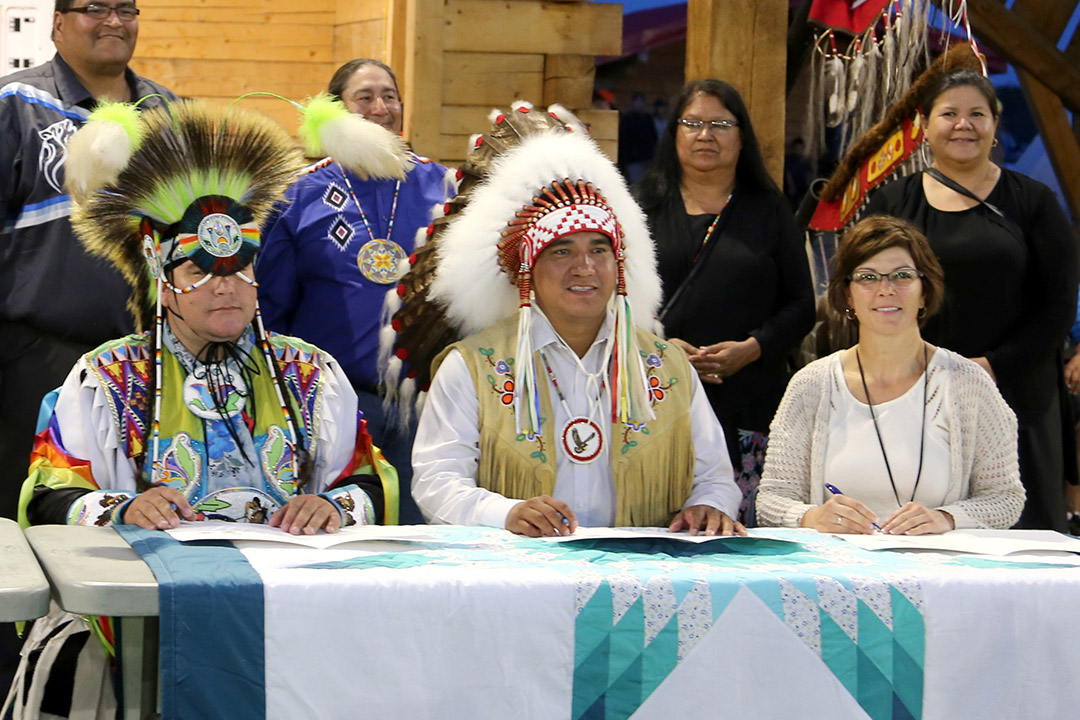
Bridging education
An expansion of the Indian Teacher Education Program (ITEP) community-based programming will now bring a four-year bachelor of education curriculum to Kahkewistahaw First Nation on Treaty 4 territory.
By Nicole BetkerAt powwow celebrations on July 13, a memorandum of understanding was signed between the U of S College of Education, ITEP and the Kahkewistahaw First Nation by College of Education Dean Michelle Prytula, ITEP Director Chris Scribe and Kahkewistahaw Chief Evan Taypotat. Kahkewistahaw First Nation is located about 150 kilometres east of Regina.
ITEP has been offering community-based teacher education programs since 1972. ITEP teachers—more than 1,500 graduates from about 60 First Nations in Saskatchewan, Alberta, Manitoba, Northwest Territories, Quebec and Nunavut—ensure the survival of culture as they are academically and culturally educating the youth of communities throughout Canada.
“The College of Education and ITEP are proud to be able to offer programs in settings that enable students to be successful in their home community,” said Prytula. “Building on successes seen with similar programs on Treaty 6, we are pleased to be offering this valuable program starting this fall on Treaty 4.”
Classes on Kahkewistahaw First Nation will be held every Friday at the community high school for four years starting in September and is offered to anyone in the community and surrounding reserves—Indigenous or non-Indigenous. The program already has 24 applications and can accommodate up to 40 students.
“Education is power in a Western society,” said Taypotat. “The more degrees we can get, the more powerful we can be.”
Taypotat graduated through the ITEP program in 2004 and wanted to ensure that his community had opportunities to experience education. He understands that it is hard for Indigenous people to move and wanted to bring ITEP to his people.
“People at ITEP understand where Aboriginal people came from,” said Taypotat. “Not everyone feels comfortable and they helped me feel at home.”
Taypotat believes that the work with the College of Education is just the beginning for indigenizing education at the post-secondary level. In the future, he hopes to see degrees in many sectors, including business and agriculture, offered on reserve.

